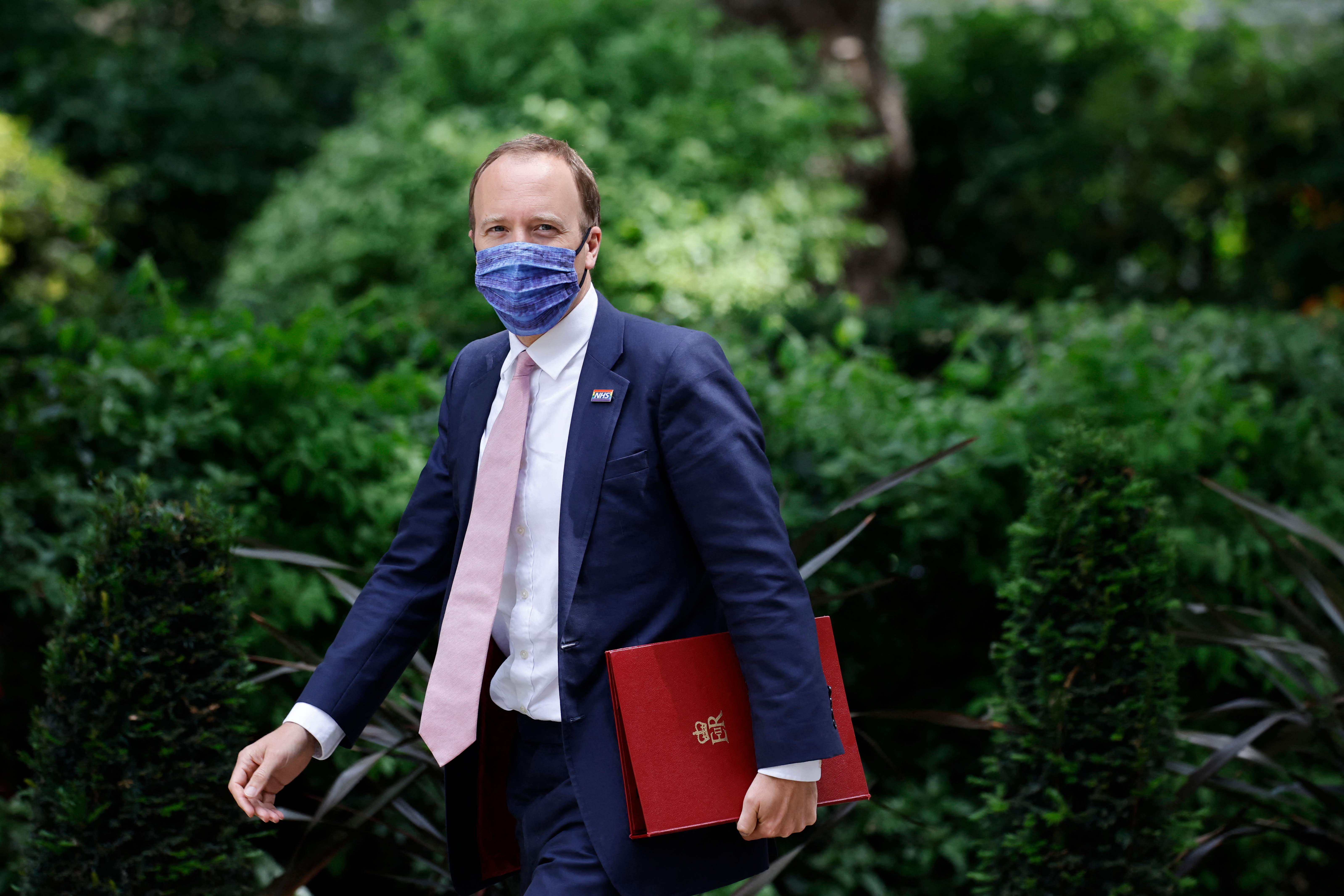By resigning, Matt Hancock did the right thing – eventually.
He will now know it would have been better to fall on his sword as soon as he admitted breaking his own Covid-19 social distancing rules by kissing Gina Coladangelo in his Whitehall office. The ambitious former health and social care secretary instead tried to cling to his cabinet post – and, worryingly, Boris Johnson again seemed prepared to ride out a media storm engulfing one of his ministers, for a while at least.
But with opinion polls showing justified public anger at his hypocrisy – and the pressure not abating – his departure was made inevitable. It was not just that Mr Hancock, like Dominic Cummings before him, fuelled the damaging impression of a government that believes there is “one rule for us, another for everyone else”. The image of a “government of chums” was reinforced by Mr Hancock’s handling of personal protective equipment contracts, and by the appointment of his longstanding friend Ms Coladangelo to a £15,000-a-year post, supposedly to monitor his and his department’s performance. The public still deserves an explanation of how that was allowed to happen.
Mr Johnson probably took the view, after last month’s local elections and the Hartlepool by-election, that voters cared little about Labour’s allegation that “Tory sleaze” is back. That would have been the wrong conclusion. As John Major discovered in the 1990s, such a picture builds up over time, but – once firmly in the mind of the public – is impossible to dislodge. The prime minister, having refused to sack Priti Patel and Robert Jenrick, not to mention Mr Cummings after his “Barnard Castle eye-test”, as some of his predecessors would surely have done, might well be grateful one day that he can point to Mr Hancock’s name in the “resigned” column.
In his resignation letter, Mr Hancock said he was “so proud that Britain avoided the catastrophe of an overwhelmed NHS”. He was an energetic minister, who deserves credit for his part in a successful vaccination programme. But history, and the overdue public inquiry into the handling of coronavirus, is unlikely to judge him as favourably as he hopes.
According to Mr Cummings’s latest revelations, Mr Johnson complained that the UK was on course to have the “double distinction of being the European country with the most fatalities and the biggest economic hit”. He also said the test and trace system, initially overseen by Mr Hancock, was “like whistling in the dark”.
While Mr Hancock succeeded in his primary aim of preventing in the UK the gruesome scenes we saw in Italy’s overrun hospitals, he did so at a terrible cost. The statement that should perhaps be his political epitaph is his claim to have thrown a “protective ring” around care homes. After more than 30,000 deaths among their residents, the majority during last winter’s second wave, we now know that Mr Hancock did nothing of the sort. The country deserved so much better than that from someone holding such a critical position in a national emergency.




Join our commenting forum
Join thought-provoking conversations, follow other Independent readers and see their replies
Comments